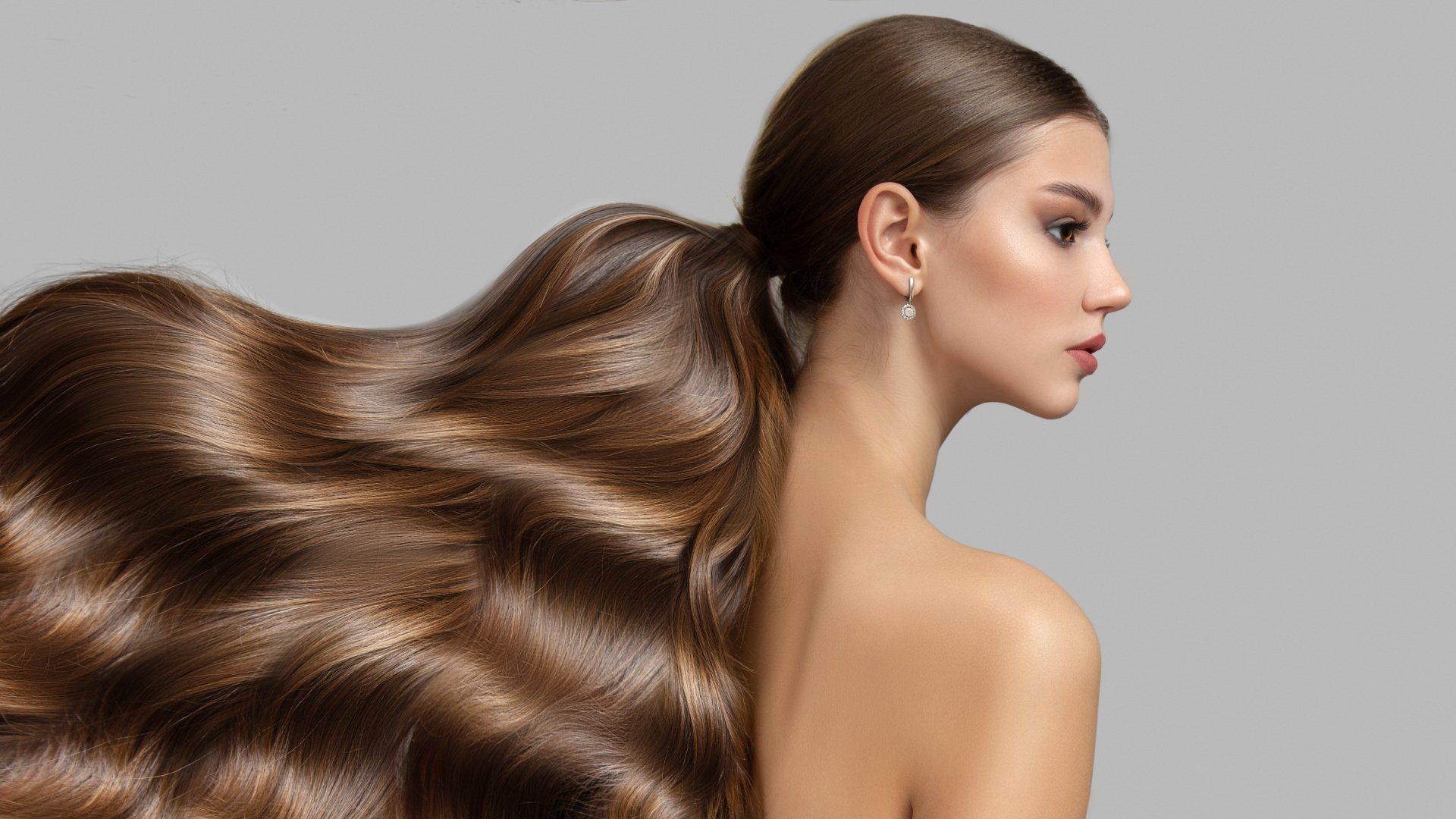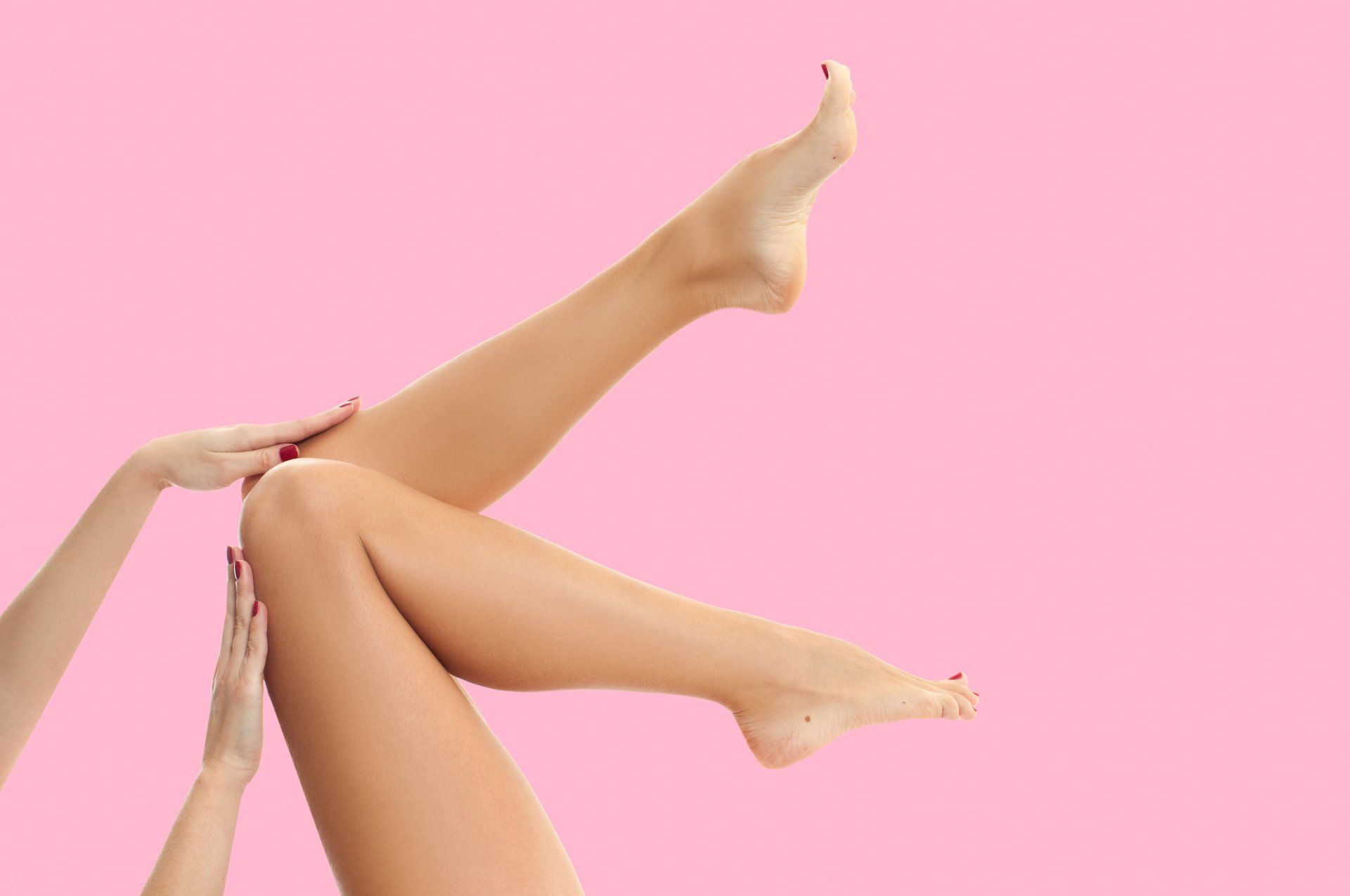How to Treat Acne
While acne is completely normal, and extremely common, it’s something that affects the self-esteem of many. Instagram filters to flawless foundations, it can be easy to think everyone around you boasts the most perfect complexion. At RMUK, we’re here to bust the smoke and mirrors and support you to gain a better understanding of your skin. We’ll help you combat acne scarring, and offer tips and advice to help you clear your acne, so you can feel a confident, best version of yourself.
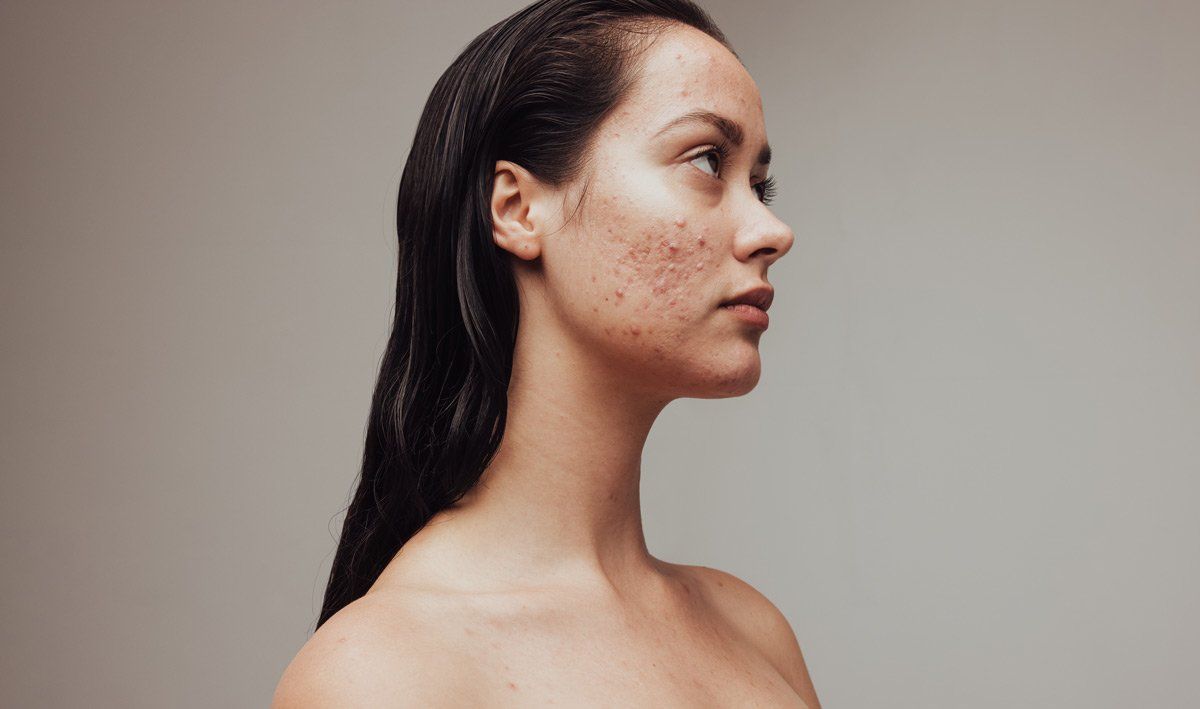
What is acne?
Acne is a common skin condition that mostly affects the face, forehead, chest, shoulders and upper back where the pores of your skin become blocked by hair, sebum, bacteria and dead skin cells. These blockages produce blackheads, whiteheads, nodules and other kinds of pimples.
Acne can take many different forms:
Blackheads: Open bumps on the skin that fill with excess oil and dead skin.
Whiteheads: Bumps that remain closed by oil and dead skin.
Cysts: Pus-filled pimples. These can cause scars.
Nodules: Solid pimples that lie deep in your skin. They are large and painful.
Papules: Small red or pink bumps that become inflamed.
Pustules: Pimples containing pus. They look like whiteheads surrounded by red rings. They can cause scarring if picked or scratched, so hands off!
Fungal acne (pityrosporum folliculitis): This occurs when an excess of yeast develops in the hair follicles. They can become inflamed and itchy.
Did you know? It’s estimated that 80% of people aged 11 to 30 will have at least a mild form of acne, making most people affected by it at some point.
Why do you get acne?
There are several causes of acne, and it can vary from person to person. It could be genetics, fluctuating hormone levels, stress, high humidity or even using greasy personal care products. While it typically affects teenagers it can actually occur at any age.
Certain things can, however, can make breakouts worse:
- Increased hormone levels around the time of a period.
- Picking at acne sores.
- Clothing and headgear that causes sweat (hats, sports helmets).
- Air pollution and certain weather conditions, for example high humidity.
- Using oily or greasy products (heavy lotions, creams and waxes).
- Working in an environment where you routinely come in contact with grease (hospitality work).
- Stress, which increases the hormone cortisol (a common cause of an acne flair).
- Certain medications.
- Genetics.
How to prevent acne
Unfortunately you can’t completely prevent acne occurring, there are, nevertheless, little things that can help.
- Wash your face daily with warm water and a mild facial cleanser.
- Routinely use moisturiser.
- Ensure all make-up is removed at the end of the day.
- Wash make-up brushes and other facial tools regularly.
- Opt for non-oil based products.
- Avoid heavy make-up on hot or humid days.
- Treat yourself to a regular facial.
- Try to use “non-comedogenic” products and remove makeup at the end of each day.
- Keep your hands away from your face.
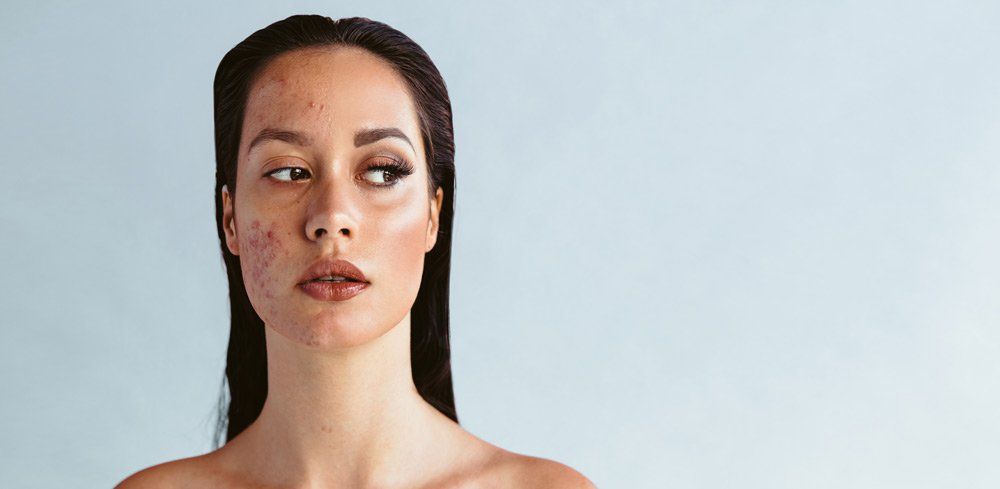
How to get rid of acne
If you’re wondering how to clear acne, other than everyday cleaning and care, it’s best to seek advice from your doctor or dermatologist as they’ll be able to properly assess the type of acne you’re suffering from. Depending on the condition’s severity, your age, the type of acne you have and how effective the over-the-counter remedies have been, you may be offered an appropriate prescription.
These therapies have also been successful for acne sufferers, either alone or in combination with medications:
1/ Light therapy - A variety of light-based therapies have been tried with some success. Most will require multiple visits. Please ask a doctor for advice.
2/ Chemical peel - This procedure uses repeated applications of a chemical solution, such as salicylic acid, glycolic acid or retinoic acid. This treatment is for mild acne. Repeated treatments are necessary.
At
RMUK, we use
Aveda Perfecting Plant Peel which is kinder to the planet and your skin, performing like 30% glycolic peel naturally without redness or irritation.
0113 243 6842 info@rm-uk.com 57 Great George St, Leeds, LS1 3BB
3/ Drainage and extraction - A specialist or doctor can use special tools to gently remove whiteheads, blackheads or cysts that haven't cleared up with medications. This technique temporarily improves the appearance of your skin, but it could also cause scarring.
4/ Effective creams - Guinot’s Serum Creme Acnilogic boasts 5 powerful active ingredients to fight synergy to rebalance skin, tighten delitated pores, disinfect/dry out imperfections, soothe redness and reduce shine.
How to get rid of acne
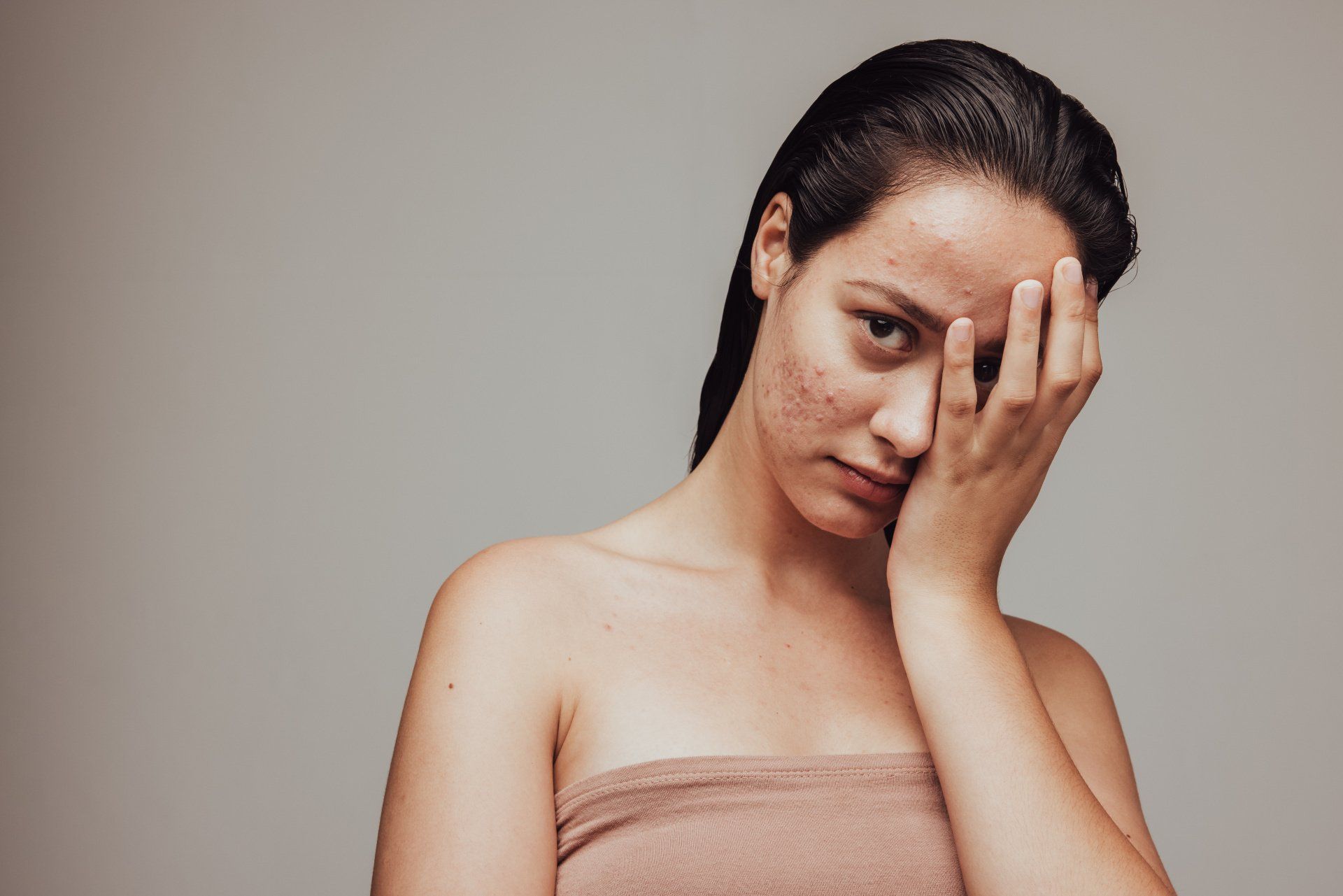
If you’ve tried just about everything to get rid of your acne but still see blemishes, these trusted tips are sure to help you see clearer skin quicker.
1/ Read labels before you buy
Make sure you’re opting for skincare products that say:
- Won't clog pores
- Non-comedogenic
- Non-acnegenic
- Oil free
2/ Use the right amount of product
While using an acne treatment seems easy, how much you use and how often you use it can make a huge difference. Be sure to follow the directions as too much product can end up clogging your pores further.
3/ Don’t scrub
Wash your face twice a day. Don’t over wash as this could irritate skin. Avoid scrubbing as this could aggravate the breakout further.
Top tip: Try washing your face straight after a sweaty workout or after spending time in the sun as this will stop the sweat seeping into your pores.
4/ Resist touching, picking, and popping spots
This will only make your symptoms worse.
5/ Spread acne medicated cream on all acne-prone skin, not just your blemishes
As well as treating existing acne it will work on the skin to prevent further breakouts.
6/ Give acne treatment 4-6 weeks to work.
As much as we’d love an instant miracle cream, treatments need time to work. Using a different product every few days can also irritate your skin, causing new flair ups.
Why do I get back acne?
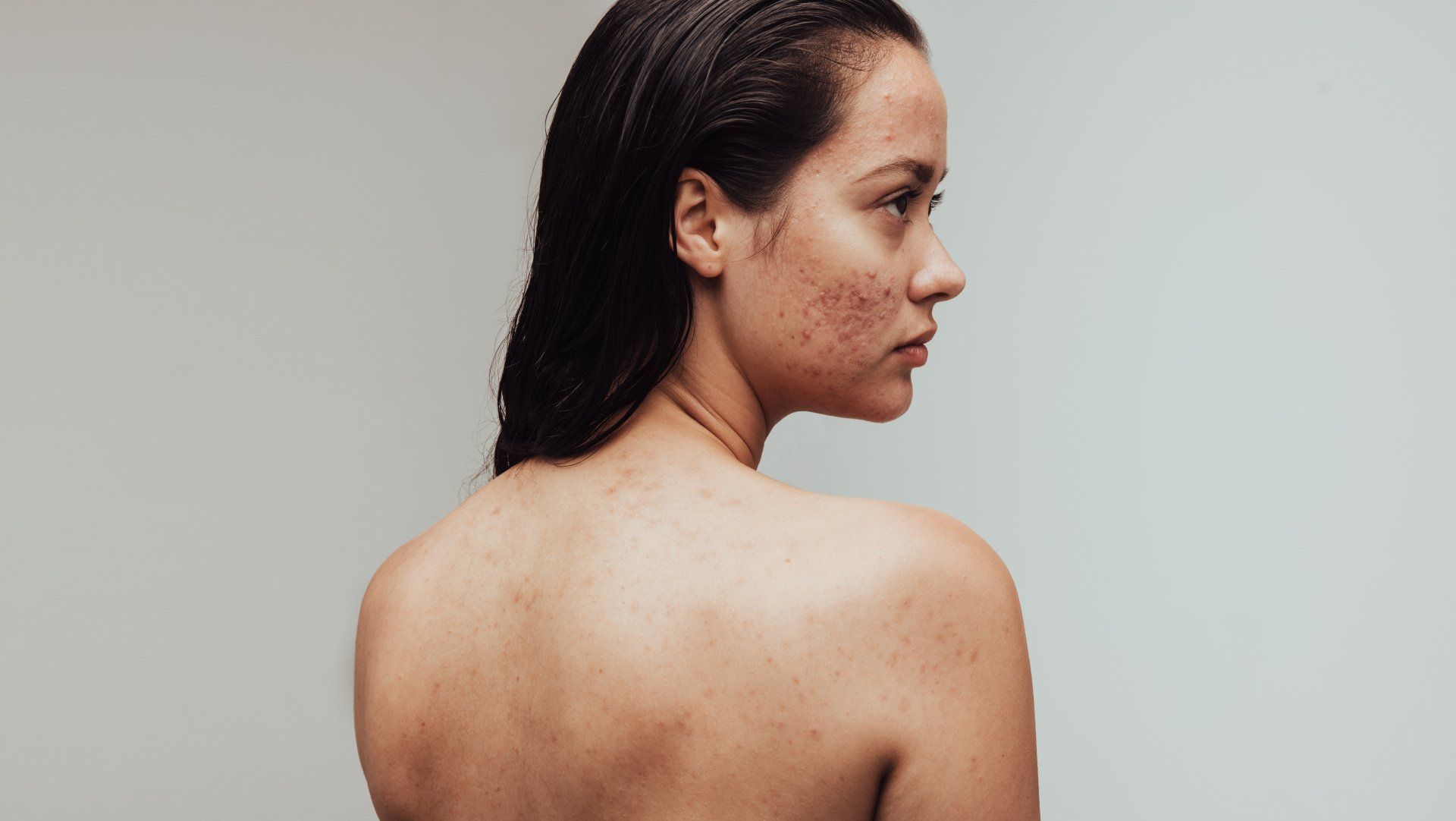
You can be prone to back acne for a number of reasons, including:
- Genetics - You’re more likely to develop it if you have a family history of acne.
- Friction - Shirts, backpacks, sporting equipment and other clothing that rubs against sweaty skin can cause or spread back acne.
- Hormones - People who are pregnant or those through adolescent development are more likely to get acne breakouts due to hormone levels changes.
- Medications - Some drugs, including corticosteroids, can cause back acne.
- Skin care products - Certain thick lotions and creams can clog pores
- Stress and anxiety - When you’re under a lot of anxiety or stress, your body makes more of the hormone cortisol. As cortisol levels rise, your body produces more sebum which plays a big role in producing acne.
How to get rid of back acne
1/ Avoid popping or squeezing spots/pimples: You can damage or infect your skin which can lead to acne scars, which can be severe.
2/ Keep your skin clean: Use an oil-free body wash that’s ‘noncomedogenic’ so you don’t clog your pores. Be gentle, remember, scrubbing can make acne worse.
3/ Use topical creams, gels and cleansers: Benzoyl peroxide products can clear up back acne. When using a benzoyl peroxide cleanser, be sure to allow the medicine to stay on the spots for 5 minutes before rinsing it off in a cool shower.
4/ Sleep in clean linens: It’s important to use clean towels, flannels, sheets and pillowcases so bacteria doesn’t build up. Ensure you wash your bed sheets at least once a week.
Acne scarring
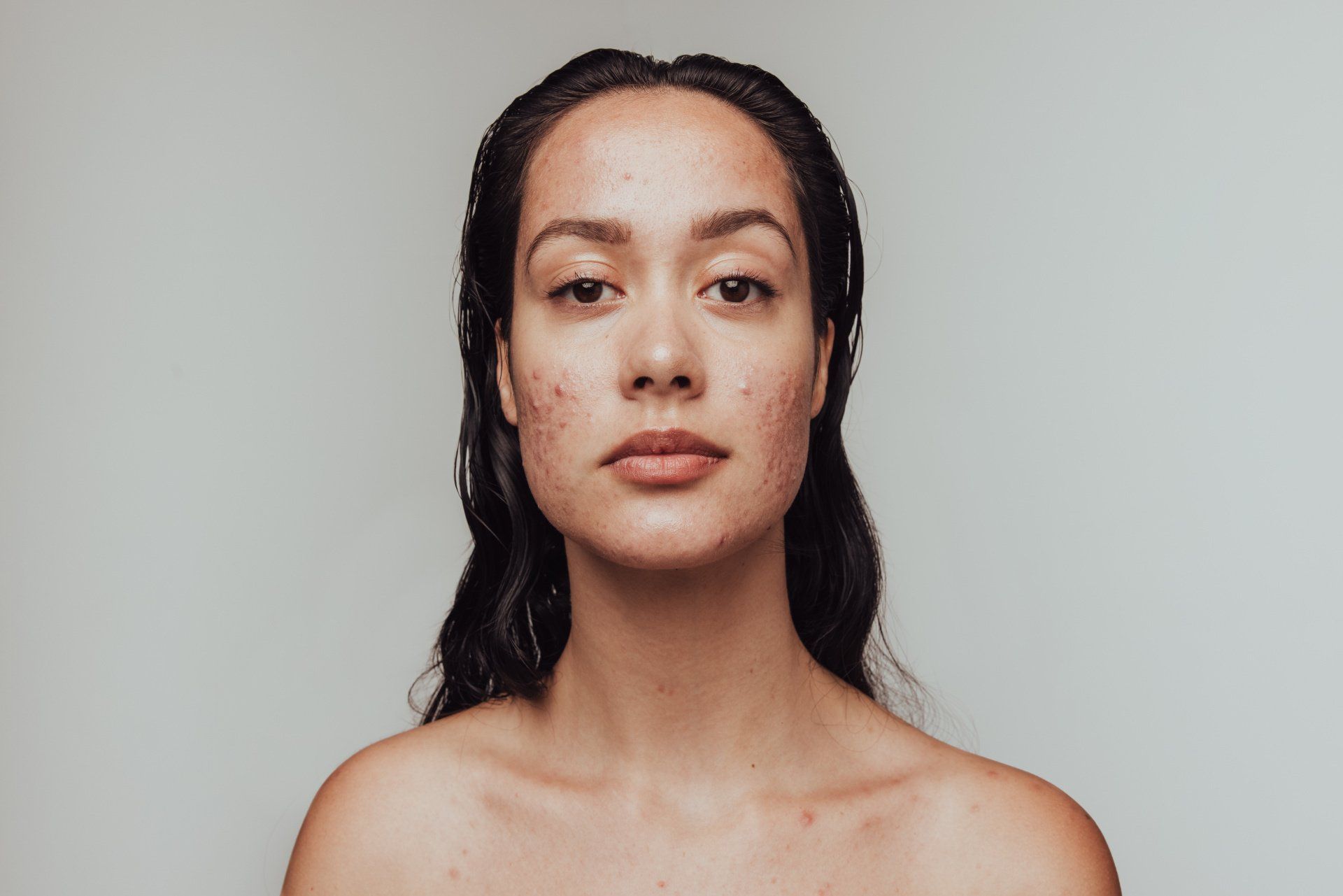
Dealing with painful acne is one thing, but long-lasting acne scarring is a battle we never want to face. Unfortunately, it happens when the acne penetrates the skin and damages the deeper layers. Inflammation makes the acne pores swell and breakdown occurs in the wall of the pore leaving a faded mark where the acne once was.
How to get rid of acne scars
There are several treatment options that can help. Chemical peels, dermabrasion, laser resurfacing and microneedling can all be used to treat acne scars. In the meantime using sunscreen daily can help limit the contrast between unscarred skin and a scar.
For a simple relaxing experience, give these facials a try:
Hydradermie Youth (60mins) The star of beauty treatments
Achieve immediate results with Guinot’s signature treatment created as the alternative to aesthetic medicine that normalises and balances the skin. The heating exfoliator has a double action that opens up your pores to eliminate sebum and extract blackheads. Reducing clogged pores promotes cell renewal for regenerated skin that is left unclogged, defined and clearer.
Aveda Tulasara Facial Treatment (90 mins)
Tulasara means moving towards balance. This facial is about the balancing of the guest’s skin’s needs whether it’s to reduce fine lines and wrinkles, sensitivity, acne or even to give the skin a more radiant appearance. We can adapt the facial to your individual needs.
Aveda Botanical Skin Resurfacing (60 mins)
Botanical alternative to microdermabrasion which will leave skin smoother and more radiant without irritation or redness.
Aveda Perfecting Plant Peel (60 mins) (treatment only)
Powered by plants performs like 30% glycolic peel naturally without redness or irritation while reducing fine lines and leaving skin more radiant.
Hydra Peeling (60 mins)
Real alternative to aesthetic medicine: erasing visible signs of ageing, recovering a radiant complexion, attenuating dark spots, brightening skin tone.
Whatever your skincare concern, we’ve got pampering spa treatments and remedies to help you put your best face forward. If you believe in the power of self care, then book an appointment today at RMUK, our beauty salon in Leeds city centre.
Our rejuvenating
facials
in Leeds are performed by skin care specialists who can advise on the best treatment for your individual needs to support you on your journey to clearer, happier skin.
0113 243 6842 info@rm-uk.com 57 Great George St, Leeds, LS1 3BB


